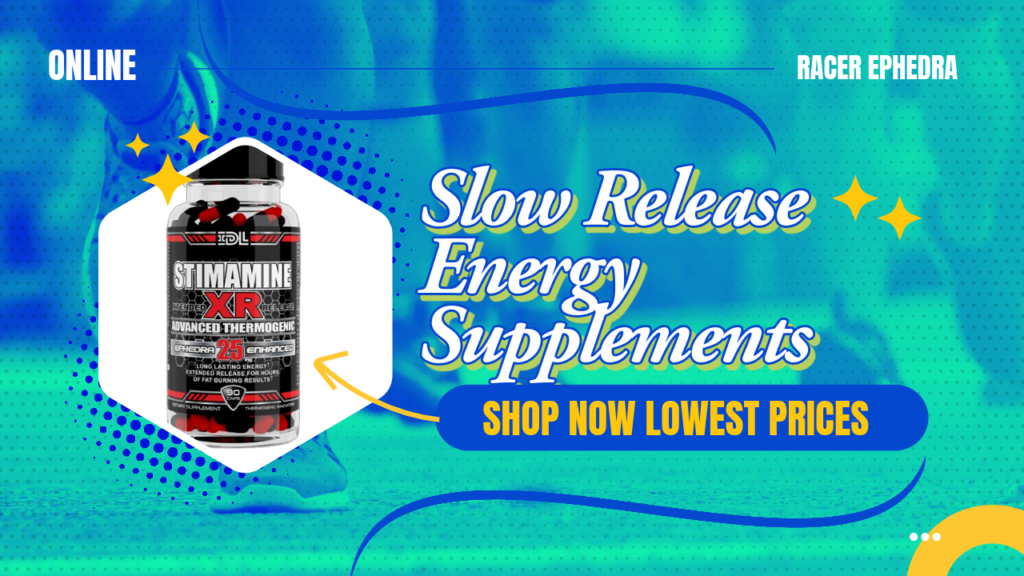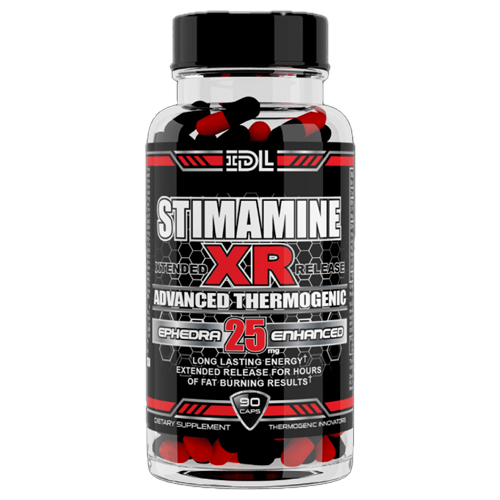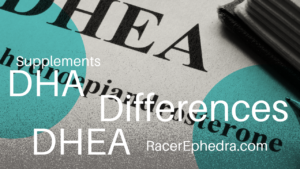In today’s fast-paced world, many people are seeking ways to boost their energy levels and achieve their weight loss goals. Slow release energy and weight loss supplements have gained popularity as convenient and effective solutions. These supplements offer a range of benefits, including enhanced energy, improved athletic performance, increased metabolism, and support for fat loss.
In this comprehensive guide, we will delve into the science behind slow release energy and weight loss supplements, exploring their mechanisms of action, ingredients, and potential effects on body composition. We will also examine the findings of relevant studies to assess the efficacy and safety of these supplements. Additionally, we will provide practical tips for choosing the right supplements and incorporating them into your daily routine.
So, let’s dive in and uncover the secrets of slow release energy and weight loss supplements.

2. Understanding Slow Release Energy Supplements
What are Slow Release Energy Supplements?
Slow release energy supplements, also known as extended-release energy supplements, are designed to provide a steady and sustained release of energy over an extended period. Unlike conventional energy-boosting products that deliver a rapid burst of energy followed by a crash, slow release energy supplements aim to provide a more balanced and prolonged energy supply. These supplements typically contain a combination of ingredients that work synergistically to support energy production and utilization in the body. (2)
How Do Slow Release Energy Supplements Work?
Slow release energy supplements work by utilizing various mechanisms to enhance energy metabolism and optimize the production, storage, and utilization of adenosine triphosphate (ATP) – the body’s primary energy currency. These supplements often contain ingredients that support ATP synthesis, increase blood flow, enhance mitochondrial function, and improve glucose and fat metabolism. By supporting these processes, slow release energy supplements can provide a sustained and reliable source of energy for physical and mental performance.
Benefits of Slow Release Energy Supplements
Slow release energy supplements offer a range of benefits for individuals seeking sustained energy levels throughout the day. Some of the key advantages of these supplements include: (1)
- Prolonged energy release: Slow release energy supplements provide a steady and prolonged release of energy, helping to prevent energy crashes and fatigue.
- Enhanced endurance and performance: By optimizing energy production and utilization, these supplements can improve endurance, stamina, and overall physical performance.
- Increased focus and mental clarity: The sustained energy provided by these supplements can support mental alertness, focus, and cognitive function.
- Improved metabolism: Some slow release energy supplements contain ingredients that can enhance metabolism, promote fat burning, and support weight management goals.
- Convenient and easy to use: Slow release energy supplements are often available in convenient forms such as capsules or powders, making them easy to incorporate into daily routines.
3. Exploring Weight Loss Supplements
The Role of Weight Loss Supplements
Weight loss supplements are designed to support and enhance the body’s natural fat-burning processes, thereby facilitating weight loss. These supplements often contain a combination of ingredients that can increase metabolism, suppress appetite, block fat absorption, and promote thermogenesis. While weight loss supplements are not a magic solution for shedding excess pounds, they can be a helpful tool when used in conjunction with a balanced diet and regular exercise. (3)
Different Types of Weight Loss Supplements
Weight loss supplements come in various forms and formulations, each targeting different aspects of the weight loss process. Some common types of weight loss supplements include:
- Thermogenic fat burners: These supplements contain ingredients that increase body heat production, boost metabolism, and promote fat oxidation.
- Appetite suppressants: These supplements work by reducing hunger cravings and helping individuals feel fuller for longer, thereby reducing calorie intake.
- Fat blockers: Fat blocker supplements inhibit the absorption of dietary fats, preventing them from being stored in the body.
- Carb blockers: These supplements hinder the digestion and absorption of carbohydrates, reducing their impact on blood sugar levels and fat storage.
- Metabolism boosters: These supplements contain ingredients that support optimal metabolic function, helping the body burn calories more efficiently.
Common Ingredients in Weight Loss Supplements
Weight loss supplements often contain a combination of natural ingredients that have been shown to support weight loss efforts. Some common ingredients found in these supplements include: (4)
- Caffeine: A well-known stimulant that can increase metabolism, enhance fat oxidation, and suppress appetite.
- Green tea extract: Rich in antioxidants and catechins, green tea extract can boost metabolism and promote fat burning.
- Garcinia cambogia: Derived from a tropical fruit, garcinia cambogia is believed to suppress appetite and inhibit fat production.
- Raspberry ketones: These compounds are thought to increase metabolism and enhance fat breakdown.
- Forskolin: Derived from the Coleus forskohlii plant, forskolin has been shown to stimulate fat burning and support weight loss.
It’s important to note that the effectiveness and safety of weight loss supplements can vary, and it’s always advisable to consult with a healthcare professional before starting any new supplement regimen.
4. The Science Behind Slow Release Energy
ATP and its Role in Energy Production
Adenosine triphosphate (ATP) is a molecule that serves as the primary source of energy for cellular processes in the body. ATP is produced through a complex series of biochemical reactions in the mitochondria, the powerhouses of the cell. When ATP is broken down, it releases energy that can be used for various biological processes, including muscle contraction, nerve impulse transmission, and metabolic reactions.
Ancient Peat and Apple Extracts: A Novel Approach to ATP Enhancement
Ancient peat and apple extracts have emerged as a novel approach to enhancing ATP levels in the body. These extracts have been shown to increase ATP production and availability, leading to improved energy metabolism and performance. Research has demonstrated that a 150 mg dose of a blend of ancient peat and apple extracts can significantly increase blood ATP levels compared to placebo. These extracts have also been found to decrease reactive oxygen species, which can be associated with increased ATP production.
The Impact of Caffeine on Energy Levels
Caffeine is a well-known stimulant that has been shown to enhance energy levels and improve physical and cognitive performance. Caffeine works by blocking the action of adenosine, a neurotransmitter that promotes sleep and relaxation. By blocking adenosine receptors, caffeine increases alertness and energy levels. Additionally, caffeine has been found to stimulate the release of adrenaline, a hormone that can increase heart rate, blood flow, and energy mobilization.
5. The Effects of Slow Release Energy Supplements on Body Composition
Enhancing Muscle Hypertrophy with Slow Release Energy Supplements
Slow release energy supplements have the potential to enhance muscle hypertrophy, the process of increasing muscle size and strength. The sustained release of energy provided by these supplements can support intense training sessions and promote muscle protein synthesis. In a study investigating the effects of a multi-ingredient supplement on reaction time, participants who consumed the supplement demonstrated a significantly faster reaction time compared to those who received a placebo. This suggests that the supplement may improve athletic performance, including muscle contraction speed.
The Influence of Slow Release Energy on Fat Loss
In addition to supporting muscle growth, slow release energy supplements may also play a role in fat loss. Some ingredients found in these supplements, such as caffeine, have been shown to increase metabolism, promote fat oxidation, and suppress appetite. A study examining the efficacy and safety of an extended-release niacin supplement found that participants experienced significant reductions in LDL cholesterol and apolipoprotein B, indicating improved lipid profiles. These findings suggest that slow release energy supplements may have beneficial effects on fat metabolism and cardiovascular health.
Safety Considerations of Slow Release Energy Supplements
When considering the use of slow release energy supplements, it’s important to be aware of potential safety considerations. While the studies reviewed in this guide did not report any serious adverse events, it’s always recommended to consult with a healthcare professional before starting any new supplement regimen. Individual responses to supplements can vary, and certain ingredients may interact with medications or pre-existing health conditions. It’s also important to follow recommended dosage instructions and adhere to manufacturer guidelines.
6. Case Studies: Examining the Efficacy of Slow Release Energy and Weight Loss Supplements
Study 1: Effects of a Multi-Ingredient Supplement on Reaction Time
In a study investigating the effects of a multi-ingredient supplement on reaction time, participants who consumed the supplement demonstrated a significantly faster reaction time compared to those who received a placebo. The supplement contained caffeine, GABA, 5-HTP, DMAE, and Beta-PEA, among other ingredients. The improved reaction time suggests that the supplement may enhance cognitive function and performance.
Study 2: Efficacy and Safety of an Extended-Release Niacin Supplement
Another study examined the efficacy and safety of an extended-release niacin supplement. Participants who supplemented with the niacin experienced significant reductions in LDL cholesterol and apolipoprotein B, indicating improved lipid profiles. The supplement was generally well-tolerated, with no serious adverse events reported. These findings suggest that extended-release niacin supplements may be effective in improving cardiovascular health.
Study 3: The Effects of a Combination of Ancient Peat and Apple Extracts on Body Composition
A study investigated the effects of a combination of ancient peat and apple extracts on body composition when used in conjunction with 12 weeks of resistance training. Participants who supplemented with the combination demonstrated significant increases in muscle cross-sectional area and muscle thickness compared to those who received a placebo. These findings suggest that the supplement may enhance resistance training-induced muscle hypertrophy.
7. How to Choose the Right Slow Release Energy and Weight Loss Supplement
Factors to Consider When Selecting a Supplement
When choosing a slow release energy or weight loss supplement, there are several factors to consider. These include:
- Ingredients: Read the label and familiarize yourself with the ingredients in the supplement. Look for evidence-based ingredients that have been shown to be effective and safe.
- Reputation and Quality: Choose reputable brands that prioritize quality and conduct third-party testing to ensure product purity and potency.
- Dosage and Timing: Follow the recommended dosage instructions and consider the timing of supplementation to maximize effectiveness.
- Personal Goals: Consider your specific goals and choose a supplement that aligns with those goals, whether it’s increasing energy levels, supporting weight loss, or enhancing athletic performance.
- Individual Needs: Take into account any specific dietary restrictions, allergies, or sensitivities you may have when selecting a supplement.
Reading Labels and Understanding Ingredients
When reading supplement labels, it’s important to understand the purpose and dosage of each ingredient. Look for ingredients that are backed by scientific research and have been shown to be safe and effective. Pay attention to the concentration of active ingredients and any potential allergens or additives.
Consulting with a Healthcare Professional
Before starting any new supplement regimen, it’s always advisable to consult with a healthcare professional. They can provide personalized advice and guidance based on your individual health status, medications, and specific goals. They can also help identify any potential interactions or contraindications that may exist.
8. Tips for Incorporating Slow Release Energy and Weight Loss Supplements into Your Routine
Timing and Dosage Recommendations
To maximize the benefits of slow release energy and weight loss supplements, it’s important to follow the recommended dosage instructions and consider the timing of supplementation. Some supplements are best taken before workouts to enhance energy levels and performance, while others may be more effective when taken with meals or at specific times throughout the day. Follow the instructions provided by the manufacturer and consult with a healthcare professional if you have any questions or concerns.
Combining Supplements with Exercise and Nutrition
While slow release energy and weight loss supplements can be beneficial, they are not a substitute for a balanced diet and regular exercise. To achieve optimal results, it’s important to combine supplementation with a healthy lifestyle. Focus on consuming a nutrient-dense diet that provides all essential macronutrients and micronutrients. Engage in regular physical activity, including both cardiovascular exercise and strength training, to support overall health and weight management.
Monitoring Your Progress
Keep track of your progress when incorporating slow release energy and weight loss supplements into your routine. Monitor changes in energy levels, performance, body composition, and overall well-being. It’s also important to listen to your body and adjust your supplementation as needed. If you experience any adverse effects or if you’re not seeing the desired results, consult with a healthcare professional for further guidance.
9. Potential Side Effects and Precautions
Common Side Effects of Slow Release Energy and Weight Loss Supplements
While slow release energy and weight loss supplements are generally safe when used as directed, some individuals may experience side effects. Common side effects can include gastrointestinal discomfort, increased heart rate, jitteriness, insomnia, and headaches. These side effects are typically mild and temporary, but if they persist or worsen, it’s advisable to discontinue use and consult with a healthcare professional.
Who Should Avoid These Supplements?
Certain individuals should exercise caution or avoid the use of slow release energy and weight loss supplements. These include:
- Pregnant or breastfeeding women: The safety of these supplements during pregnancy and lactation has not been established, so it’s best to consult with a healthcare professional before use.
- Individuals with pre-existing medical conditions: People with underlying medical conditions, such as cardiovascular disease, high blood pressure, diabetes, or kidney disease, should consult with a healthcare professional before using these supplements.
- Those taking medications: Some ingredients in these supplements may interact with certain medications. It’s important to consult with a healthcare professional if you’re taking any medications to ensure there are no potential interactions.
Precautions for Safe Use
To ensure safe use of slow release energy and weight loss supplements, consider the following precautions:
- Start with a low dosage: Begin with the lowest recommended dosage and gradually increase as tolerated.
- Stay hydrated: Proper hydration is important when using supplements. Drink plenty of water throughout the day.
- Follow recommended usage guidelines: Adhere to the recommended dosage instructions and do not exceed the recommended daily intake.
- Monitor your body’s response: Pay attention to how your body responds to the supplement and discontinue use if you experience any adverse effects.
- Store properly: Keep supplements in a cool, dry place and out of reach of children.
Stimulating Central Nervous System
Caffeine, a widely consumed psychoactive substance, is known for its stimulating effects on the central nervous system. It is found in various beverages and foods, including coffee, tea, energy drinks, and chocolate. While caffeine is often associated with increased alertness and energy, its impact on neurotransmitters has been a subject of extensive research. This article aims to provide a comprehensive analysis of the effects of caffeine on neurotransmitters, specifically focusing on GABA, 5-HTP, and DMAE.
Understanding Caffeine
Caffeine is a natural compound classified as a methylxanthine. When consumed, it quickly crosses the blood-brain barrier and binds to adenosine receptors in the brain. Adenosine is a neurotransmitter that promotes relaxation and sleep. By blocking the adenosine receptors, caffeine inhibits the inhibitory effects of adenosine, leading to increased wakefulness and alertness.
The Role of GABA
Gamma-Aminobutyric Acid (GABA) is the primary inhibitory neurotransmitter in the central nervous system. It plays a crucial role in regulating neuronal excitability, reducing anxiety, and promoting relaxation. Research suggests that caffeine may modulate GABAergic neurotransmission, although the exact mechanisms are still being explored. (6)
One study conducted on mice found that a low protein diet containing adaptogens GABA led to decreased body weight and food intake in lean mice compared to genetically obese (ob/ob) mice. Interestingly, lean and obese mice fed a diet with 4.5% GABA experienced significant weight loss over a period of 10 to 32 days. When refed a control diet, both groups gained weight rapidly, with the obese mice showing more prolonged weight gain. It was observed that the obese mice were less sensitive to dietary GABA than their lean counterparts.
The Impact on 5-HTP
5-Hydroxytryptophan (5-HTP) is a precursor to serotonin, a neurotransmitter associated with mood regulation and feelings of well-being. Some studies have explored the influence of acute tianeptine pretreatment, an antidepressant that stimulates 5-HT reuptake, on corticosterone release and body weight loss following 5-HTP administration in rats. The results indicated that both saline- and tianeptine-pretreated rats showed increased plasma corticosterone levels after 5-HTP administration. However, the combined administration of benserazide, an inhibitor of peripheral aromatic l-amino acid decarboxylase, and 5-HTP resulted in overnight body weight loss only in saline-pretreated rats, not in tianeptine-pretreated rats. (7)
These findings suggest that tianeptine preferentially activates 5-HT reuptake in central serotonergic neurons. Further research is needed to fully understand the complex interaction between caffeine and 5-HTP, as well as the potential implications for body weight regulation.
DMAE and Caffeine
Dimethylaminoethanol (DMAE) is a compound that has been investigated for its potential cognitive-enhancing effects. While there is limited direct research on the interaction between DMAE and caffeine, both substances have been independently studied for their impact on brain function. (8)
Caffeine, as mentioned earlier, acts as an adenosine receptor antagonist, promoting wakefulness and increasing alertness. DMAE, on the other hand, is believed to enhance cholinergic activity in the brain, potentially leading to improved cognitive function. Some anecdotal evidence suggests that combining DMAE with caffeine may result in heightened focus and mental clarity, although more scientific research is needed to substantiate these claims.
Adenosine Receptor Antagonist
In conclusion, caffeine, a widely consumed psychoactive substance, has various effects on neurotransmitters in the brain. While it acts as an adenosine receptor antagonist, promoting wakefulness and alertness, its impact on other neurotransmitters such as GABA, 5-HTP, and DMAE is more complex.
Studies have shown that caffeine may modulate GABAergic neurotransmission, with potential implications for weight regulation. Additionally, the interaction between caffeine and 5-HTP is still not fully understood, necessitating further research to elucidate the mechanisms involved. The combination of DMAE and caffeine is currently understudied, but anecdotal evidence suggests potential cognitive-enhancing effects.
As research in this field continues to advance, a better understanding of the effects of caffeine on neurotransmitters will contribute to our knowledge of brain function and may have implications for various aspects of human health and well-being.
10. Conclusion
Slow release energy and weight loss supplements can be valuable tools in supporting energy levels, enhancing athletic performance, and promoting weight loss. These supplements work by providing sustained energy release, optimizing ATP production, and supporting metabolic processes. When used in conjunction with a balanced diet and regular exercise, they can help individuals achieve their fitness and weight loss goals.
However, it’s important to choose high-quality supplements, understand the ingredients, and follow recommended dosage instructions. It’s also advisable to consult with a healthcare professional before starting any new supplement regimen, especially if you have underlying medical conditions or are taking medications.
Remember, supplements are not a magic solution, and individual responses may vary. It’s crucial to prioritize overall health, exercise caution, and listen to your body’s needs. By combining these supplements with a healthy lifestyle, individuals can optimize their energy levels, support weight loss efforts, and improve their overall well-being.




